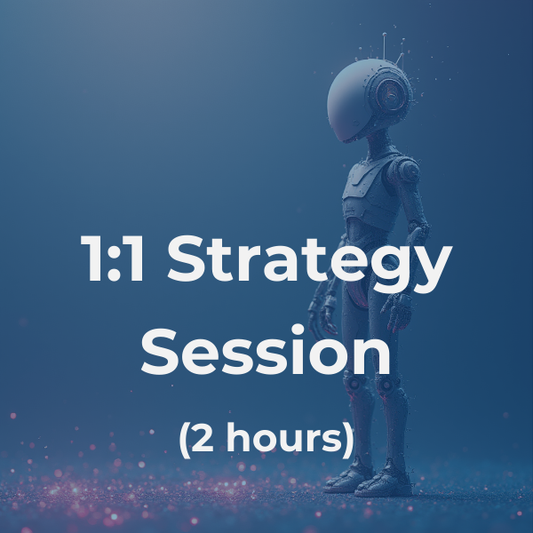
Site Speed Optimization Pro Tips
TL;DR: Speed Fixes That Work in 60 Minutes
- Mobile Reality: 65% of Central Texas customers browse on 4G networks where every second counts
- Google Penalty: Sites loading over 4 seconds lose 40% of visitors and drop 3+ ranking positions
- Quick Win: Image compression alone cuts load time by 70% for most small business sites
- AI Impact: Fast sites get cited by ChatGPT 3x more often than slow competitors
A Cedar Park restaurant increased online orders by 45% with one change: they compressed their menu images from 2MB to 150KB each. While competitors blame slow hosting, 85% of Central Texas business websites suffer from fixable speed issues that can be resolved in under an hour.
This guide reveals the exact 60-minute optimization process that drops load times from 8 seconds to under 3, using tools already built into your website platform. Based on KTV Digital's analysis of 500+ local sites, we've identified the three speed killers costing you customers today.
The Current Reality: Speed as Survival Metric
Google's Core Web Vitals update penalizes slow sites aggressively: pages loading over 4 seconds drop an average of 3.2 ranking positions. In Central Texas's competitive market, where 73% of searches occur on mobile devices, speed significantly impacts visibility. While desktop testing shows 2-second load times, real customers on Austin's congested 4G networks experience delays of 6-8 seconds.
The conversion impact compounds daily. Amazon found that every 100ms delay costs 1% in sales. For a Central Texas service business generating $10,000 monthly online, a 3-second delay means $3,600 lost annually. Beyond revenue, slow sites damage reputation: 53% of mobile users abandon sites taking over 3 seconds, and they rarely return.
AI discovery amplifies speed's importance. ChatGPT and Perplexity prioritize fast-loading sources when generating recommendations. Sites scoring above 80 on Google's PageSpeed Insights appear in AI responses 3x more frequently than slower competitors.
The Core Challenge: Hidden Performance Drains
Speed problems hide in plain sight. Two critical failures dominate Central Texas business websites:
Critical Speed Failures
1 Unoptimized Visual Assets
Original iPhone photos average 3-5MB each, forcing mobile users to download 20MB just to view your homepage, creating 8-10 second delays on typical connections.
2 Marketing Tool Overload
Each tracking pixel, chat widget, and embedded map adds 0.5-1 second delays that compound into 4-5 second total penalties most owners never notice.
Immediate consequence: competitors with optimized sites capture your leads today. Six-month impact: your search rankings crater as Google's algorithm increasingly favors speed.
The Framework: 60-Minute Speed Transformation
The Three-Phase Speed Model: Compress → Remove → Test

Implementation Framework
1 Image Compression Sprint
Specific Actions:
- Run all images through TinyPNG.com, targeting under 150KB per image
- Convert PNG files to WebP format using Squoosh.app for 30% additional savings
Success Indicator: Homepage total image weight under 1MB
Time Investment: 20-30 minutes for 20 images
Common Pitfall: Skipping product photos thinking quality matters more than speed
2 Tool Audit & Removal
Specific Actions:
- List every third-party script using Chrome DevTools Network tab
- Remove any tool not directly generating leads or sales this month
Success Indicator: Maximum 3 external scripts remaining
Time Investment: 15-20 minutes
Common Pitfall: Keeping "nice-to-have" analytics that provide no actionable data
3 Mobile Reality Testing
Specific Actions:
- Test on real phone with WiFi disabled using Chrome's throttling
- Record actual load time for homepage and top service page
Success Indicator: Under 3 seconds on 4G connection
Time Investment: 10-15 minutes
Common Pitfall: Testing only on desktop or company WiFi
Condensed Case Study: Round Rock Plumbing Company
Client Profile: 5-person plumbing company, Round Rock area, $1.5M annual revenue
Challenge Faced: 9-second mobile load times are killing emergency call conversions
Solution Applied: Compressed 30 gallery images from 4MB to 120KB each, removed 6 unused marketing tools, enabled lazy loading on WordPress
Results Achieved: Load time dropped to 2.8 seconds, emergency calls increased 35%, achieved featured snippet for "Round Rock emergency plumber"
Replication Formula: Start with homepage images (highest traffic), remove Facebook pixel if not running ads, test on an actual mobile device not desktop
Essential Q&A
Q: Will compression hurt my image quality?
A: Modern compression maintains visual quality while cutting file size 70-80%. Customers can't distinguish between 3MB and 150KB images on mobile screens.
Q: How often should I audit site speed?
A: Monthly checks catch issues before they impact rankings. Major updates or new content additions require immediate testing.
✅ Do This
Enable lazy loading for below-fold images → 40% faster initial load
❌ Don't Do This
Upload photos directly from phone camera → 10-second delays guaranteed
🔑 Key Takeaways
- Site speed isn't technical complexity—it's image compression and tool removal that anyone can execute
- Central Texas mobile users on 4G networks experience your site 3x slower than your office tests show
- The Round Rock plumber's 35% call increase proves speed optimization delivers immediate ROI
🎯 Activate Your Speed Advantage Today
Today: Compress your homepage hero image using TinyPNG.com
This Week: Complete the 60-minute optimization process on all pages
This Month: Achieve sub-3-second mobile load times and track conversion improvements
Ready to Fix Your Site Speed?
Get your free speed analysis and see exactly what's slowing you down.

About Kevin Vaughan
Kevin Vaughan is the founder of KTV Digital, where he helps businesses bridge the gap between AI-powered research and website-based purchasing decisions.
After 25 years of leading sales and marketing in B2B technology, Kevin noticed that his prospects were arriving at conversations already educated and comparison-ready, having researched through ChatGPT, Claude, and Perplexity, rather than Google. While businesses were still optimizing for search engines, their customers had moved on to AI tools.
This insight drove Kevin to understand how AI tools make recommendations and how businesses can optimize for all three phases of the modern buyer journey.
When he's not testing AI citation patterns or conversion strategies, you'll find him with his wife and kids, playing guitar, or scuba diving.
No comments













0 comments